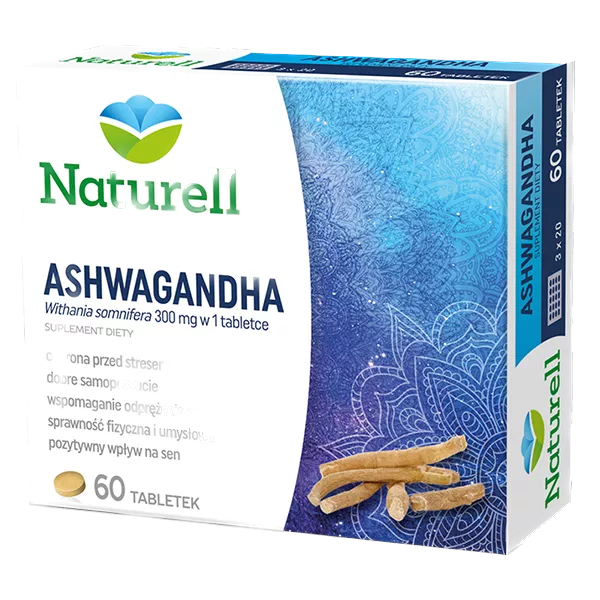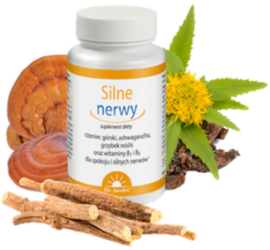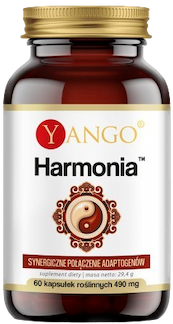How much ashwagandha per day? Dosage for sleep and more
Ashwagandha is an interesting plant with great health-promoting potential. How to supplement it safely?


Learn more about our editorial process
.

Learn more about our editorial process
.

Learn more about our editorial process
.

Learn more about our editorial process
.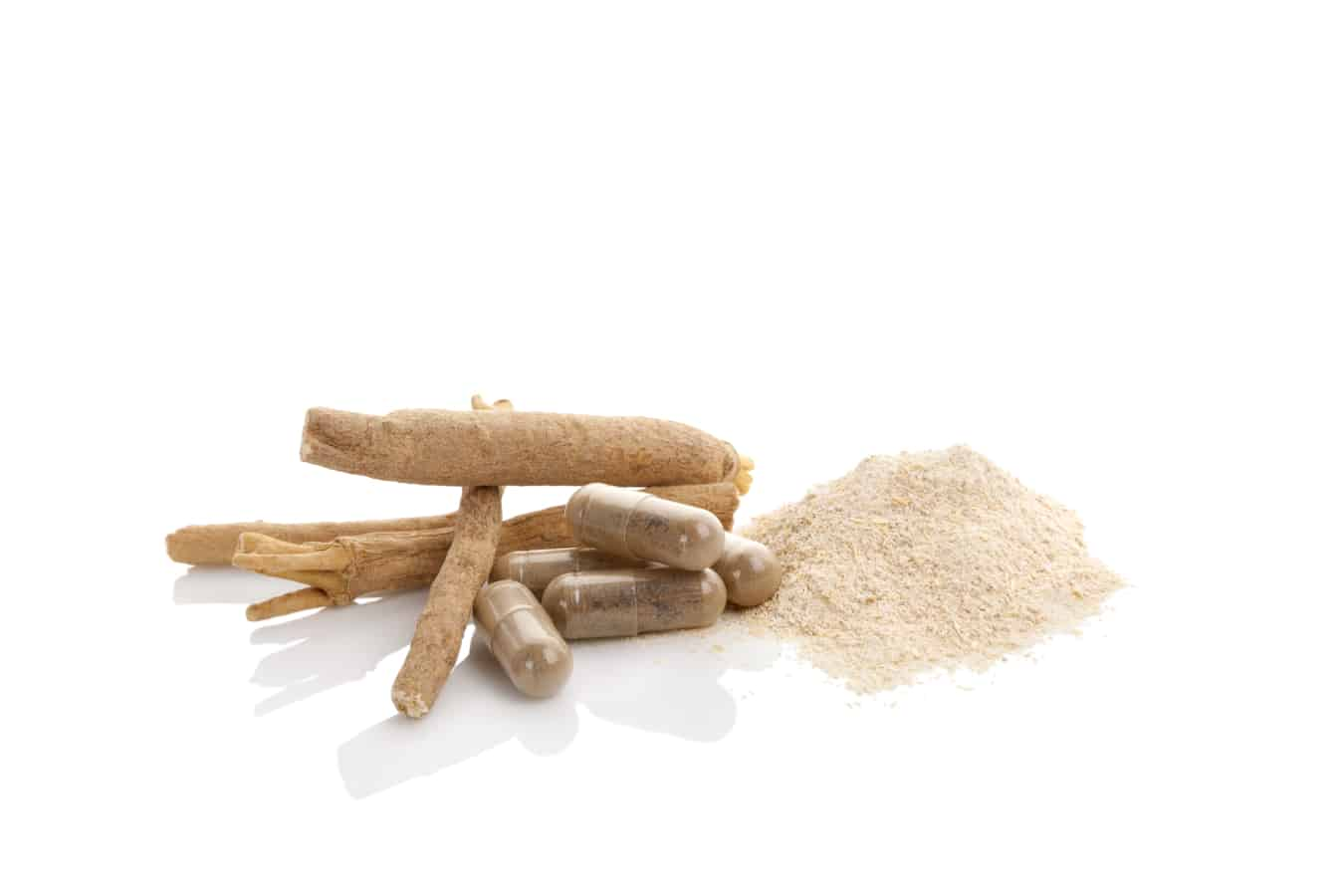
Why you can trust us
Articles on Natu.Care are written based on scientific research, data from government websites and other reliable sources. The texts are written in cooperation with doctors, nutritionists and other health and beauty experts. Articles are reviewed before publication and during significant updates.
.Learn more about our editorial process
.Information about advertisements
Content on Natu.Care may contain links to products from the sale of which we may receive a commission. When creating content, we adhere to high editorial standards and take care to be objective about the products discussed. The presence of affiliate links is not dictated by our partners, and we select the products we review ourselves completely independently.
.Learn more about our terms and Conditions
.Ashwagandha is a supplement for the patient - you have to wait for its results. Shock doses or immediate effects do not work with it.
I asked Dr Witold Tomaszewski, M.D., for his opinion on supplementation. Read on and you will find out what the recommended dosage is, depending on the expected effects, and what to look out for during supplementation.
Description of contents:
- Ashwagandha - effects and properties
- .
- Recommended dosage
- .
- Ashwagandha overdose
- .
- How to supplement ashwagandha safely? Expert advice
- Summary
- .
See also:
- Ashwagandha
- Ashwagandha SFD
- Ashwagandha Aliness
- Ashwagandha Naturell
- Ashwagandha Swanson
- Solgar's Ashwagandha
- Indian ginseng
- Adaptogens
- Ashwagandha in the morning or at night?
- Ashwagandha - when does it start working?
Ashwagandha - effects and properties
.
Ashwagandha, also known as Indian ginseng, sluggard or sleeping sickness, is one of the most important plants used in Ayurvedic medicineand.
Ashwagandha is an adaptogen, which means it belongs to a group of plants with health-promoting effects on the human body. It boosts resistance to stress, has anti-fatigue, antidepressant and neuroprotective effectsand.
Ashwagandha - dosage
.
The typical daily dose of ashwagandha is 300-800 mg of extract standardised to 5-10% vitanolides, 3-6 g of powdered root or 1-2 tablespoons of root tea. The dosage of ashwagandha depends on the preparation, form and amount of active substance. It is not recommended to take ashwagandha for more than 3 months without interruption.
Ashwagandha available in Poland has different forms, which affects supplementation recommendations. Treat the above dosage recommendations as informative - always keep in mind your doctor's advice and the manufacturer's recommendation found on the leaflet or packaging.
Dosing will depend on factors:
.
- Forms of administration of ashwagandha - extract in tablet or capsule, powdered root or cut root.
- Daily dosage.
- Daily dosage and % vitanolides content.
- .
- Expected effects and reasons for supplementation.
- .
Tablets, powdered root or infusion?
.
When purchasing extract tablets pay attention to the vitanolides content. Vitanolides are biologically active compounds found in plants that have a multisystemic effect on the bodyand. Their value should be between 2.5 and 10%. It is best to buy an extract standardised to a minimum of 5%. Typically, manufacturers' recommended doses of ashwagandha tablets are 300-800 mg per day, taken at any time of day .
If you want to supplement powdered root, manufacturers usually indicate a serving of 6 g per dayand. You can drink such a powder with water or your favourite drink, or add it to yoghurt or a smoothie. The time of day doesn't matter - you can have it with yoghurt for breakfast or in a shake for dinner.
If you enjoy the ritual of preparing tea, cut ashwagandha root is ideal. Tea manufacturers usually recommend consuming 1-2 tablespoons of the root (about 5-7 g). Pour a cold glass of water over it and boil for about 5 minutes. You can enjoy such a drink twice a day, e.g. in the morning and in the evening.
.
Sleep, sex, stress... How to dose according to expectations?
.
Results from a number of studies suggest that ashwagandha dosage can be adjusted depending on the purpose of supplementation.
Ashwagandha for sleep
.
A review of studiesand on the effects of ashwagandha on sleep found that a dose of 600 mg of the extract taken for a minimum of eight weeks improved sleep quality and reduced feelings of restlessness upon waking. Of course, supplementation alone is not enough. If you want to achieve even better results, ensure sleep hygiene and daily relaxationand.
Ashwagandha Naturell
Product description
Extract from ashwagandha leaves and root will boost energy, overcome fatigue, improve memory and concentration. The product is recommended during periods of increased physical tension or intense physical activity.
Pros and cons
Extract from ashwagandha leaves and root will boost energy, overcome fatigue, improve memory and concentration. The product is recommended during periods of increased physical tension or intense physical activity.
Additional information
Extract from ashwagandha leaves and root will boost energy, overcome fatigue, improve memory and concentration. The product is recommended during periods of increased physical tension or intense physical activity.
Dr. Jacob's Strong Nerves
Product description
Dr. Jacob's Strong Nerves is a dietary supplement thatóry supports the nervous system and helps the body to cope with stress. Thanks to the synergistic combination of beneficial ingredientsós, Strong Nerves relieves anxiety symptoms, increases mental and physical stamina, and supports concentration.
The benefits of this supplement are particularly important for peopleóly exposed to chronic stress, those with sleep problems or employeesóly. It is worth mentioning that the supplement can also help to improve mental well-being and support the immune system.
.All this makes Dr. Jacob's Strong Nerves an excellent remedy for anyone looking for comprehensive support for their nervous system and overall mental performance.
Pros and cons
Dr. Jacob's Strong Nerves is a dietary supplement thatóry supports the nervous system and helps the body to cope with stress. Thanks to the synergistic combination of beneficial ingredientsós, Strong Nerves relieves anxiety symptoms, increases mental and physical stamina, and supports concentration.
The benefits of this supplement are particularly important for peopleóly exposed to chronic stress, those with sleep problems or employeesóly. It is worth mentioning that the supplement can also help to improve mental well-being and support the immune system.
.All this makes Dr. Jacob's Strong Nerves an excellent remedy for anyone looking for comprehensive support for their nervous system and overall mental performance.
Additional information
Dr. Jacob's Strong Nerves is a dietary supplement thatóry supports the nervous system and helps the body to cope with stress. Thanks to the synergistic combination of beneficial ingredientsós, Strong Nerves relieves anxiety symptoms, increases mental and physical stamina, and supports concentration.
The benefits of this supplement are particularly important for peopleóly exposed to chronic stress, those with sleep problems or employeesóly. It is worth mentioning that the supplement can also help to improve mental well-being and support the immune system.
.All this makes Dr. Jacob's Strong Nerves an excellent remedy for anyone looking for comprehensive support for their nervous system and overall mental performance.
Solve Labs Brain Tech Memory & Focus, adaptogens, capsules

- Composition: bacopa monieri, gotu kola, rhoiola rosea, ginseng, zinc gluconate, choline, vitamin B6
- Form: capsules .
- Packaging: 30 or 60 capsules .
- Dose: 2 capsules daily .
- Sufficient for: 10 or 20 days .
Product description
Adaptogens, vitamins and minerals to support the mózg and nervous system. Brain Tech has been developed for people needing long-lasting concentration, improved learning ability, memory and increased resistance to stress.
Pros and cons
Adaptogens, vitamins and minerals to support the mózg and nervous system. Brain Tech has been developed for people needing long-lasting concentration, improved learning ability, memory and increased resistance to stress.
Additional information
Adaptogens, vitamins and minerals to support the mózg and nervous system. Brain Tech has been developed for people needing long-lasting concentration, improved learning ability, memory and increased resistance to stress.
Adaptogens, vitamins and minerals to support the mózg and nervous system. Brain Tech has been developed for people needing long-lasting concentration, improved learning ability, memory and increased resistance to stress.
YANGO, Harmony, adaptogens, capsules
Product description
This dietary supplement contains a synergistic combination of 5 plant extracts that positively influence the body's homeostasis and well-being. The product is recommended for people living under stress, tension and those who are physically active.
Pros and cons
This dietary supplement contains a synergistic combination of 5 plant extracts that positively influence the body's homeostasis and well-being. The product is recommended for people living under stress, tension and those who are physically active.
Additional information
This dietary supplement contains a synergistic combination of 5 plant extracts that positively influence the body's homeostasis and well-being. The product is recommended for people living under stress, tension and those who are physically active.
Product tiles contain affiliate links.
Ashwagandha for sex
Ashwagandha extract taken in 2 daily doses of 300 mg can improve the sexual health of men by increasing serum testosterone levels. This translates into increased libido and greater sexual satisfactionand.
Women can also benefit from the beneficial properties of ashwagandha. Research suggests that an extract of this plant, taken 2 times a day at 300 mg, may support the treatment of sexual dysfunction in women, such as difficulty reaching orgasm or lack of libido .
Ashwagandha for stress
.
Ashwagandha appears to help reduce tension and increase resistance to stress, and has also been shown to alleviate symptoms of anxiety. This is due to the plant's effect on lowering cortisol (the stress hormone)and.
In studies, beneficial effects were seen with daily supplementation of 500-600 mg of the extract in tabletsand.
Ashwagandha for athletes
.
Research suggests that doses of 600-1000 mg of the extract per day have a positive effect on performance and increased strength. Ashwagandha raises VO2max (oxygen ceiling), which will be of particular interest to people training endurance sports. Regular gym-goers may also feel the benefits. Ashwagandha promotes the building of strength and muscle massand.
For lovers of both disciplines, another benefit will be improved and reduced muscle recovery time after exercise .
Ashwagandha for immune enhancement
.
Ashwagandha can reduce inflammation in the body and help fight infection. Beneficial effects on the immune system are achieved by supplementing with 250-500 mg of the extract daily .
Ashwagandha for memory and concentration
.
Ashwagandha is traditionally used in Ayurveda to support memory and concentration. In studies, people taking 300 mg of the extract twice a day reported an overall improvement in memory, focus and performed significantly better on tests of reaction time than those taking placeboand.
As you can see, only regular and properly adjusted doses will bring us the expected benefits.
What time of day to take ashwagandha?
.
It does not matter what time of day you take ashwagandha - morning or night. The time of supplementation depends on your preference and the form of administration. However, keep in mind two useful tips.
- It is not recommended to consume ashwagandha root decoction before bedtime as it has a diuretic effectand. Going to the toilet can disrupt your diurnal rhythm and the quality of your sleep.
- If you have stomach problems, do not take ashwagandha supplements on an empty stomach. This plant can irritate the mucous membranes and cause unpleasant symptoms like nausea, abdominal painand.
- .
When does ashwagandha start to take effect?
.
Ashwagandha starts to take effect after about 4-12 weeks of taking a dose of 250 mg - 800 mg. It is worth being patient and waiting to see the effects. Try to establish a daily ritual, such as a tablet before bed or a decoction with breakfast. Ashwagandha does not have an immediate effect. To experience its health-promoting benefits, regular supplementation for a minimum of 3 months is recommended.
Ashwagandha overdose
.
Ashwagandha is considered safe, as confirmed by numerous studiesand. Of course, like any supplement, it can cause side effects, which are most often due to excessive consumption.
Various dosages were used in the studies referenced in the article. It is recommended not to exceed the doses indicated by the manufacturer on the leaflet and these are usually 1000 mg for the tablet extract and 3 g for the powdered root.
Taking large amounts of ashwagandha can lead to: digestive disorders, diarrhoea, nausea, vomiting, irritation of the intestinal mucosaand.
.
According to a resolution of the NIZP-PZH Dietary Supplements Team, on every dietary supplement with Withania Somnifera (ashwagandha) there must be information regarding the content of vitanolides per daily recommended intake of the product. The maximum content should not exceed 10 mg..
 .
.
Dr. n. med. Witold Tomaszewski
.Ashwagandha - how long to use?
.
Ashwagandha dietary supplement is best taken for no longer than 3 months. After that, take a 4-week break. The side effects of long-term use of ashwagandha (over 12 weeks)and are not known, so care should be taken. Regular intake is crucial for results.
How to supplement ashwagandha safely? Expert advice
Dr Witold Tomaszewski, M.D., advises:
- Check the contraindications to use. Ashwagandha should not be taken by: pregnant and breastfeeding women, cancer patients, diabetics, patients with thyroid disease, bleeding disorders, gastric and duodenal ulcers, lupus, multiple sclerosis and rheumatoid arthritis.
- Use the following.
- Avoid dangerous interactions with other medicines, supplements or herbs. Ashwagandha is a plant, but it can interact with other preparations. Consult your doctor if the medicines or other supplements you are taking may interact with ashwagandha.
.
- Supplement with ashwagandha regularly, for 3 months. The key to realising the full potential of this plant is to take it systematically, in a reasonable amount. After 3 months, a break in supplementation for 4 months is recommended.
See also:
- Berberine
- Curcumin
- Caffeine
- Curcuma in tablets
- Piperine
- Creatine
- Passionflower
- Sedation tablets without prescription
Summary
.
From this article remember:
.- Supplementation depends on the form of administration and the desired effects.
- .
- Always follow the manufacturer's indications on the leaflet.
- Please be aware of the following.
- Pay attention to the vitanolides content - ideally buy ashwagandha extract standardised to a minimum of 5%.
- Pay attention to the vitanolides content - ideally buy ashwagandha extract standardised to a minimum of 5%.
- To realise the full potential of this plant, regular and sensible supplementation is key.
- .
- Ashwagandha does not work on an ad hoc basis, using shock doses makes no sense and may result in unpleasant symptoms.
- .
As an Amazon Partner, I earn from qualifying purchases.
FAQ
.How much ashwagandha per day?
.It is recommended to take 250 to 800 mg of ashwagandha daily for 3 months. For safety, you should not exceed 1000 mg per day for dietary supplements and 3 g for ashwagandha root powder.
What time of day is it best to take ashwagandha?
.There is no indication as to what time of day to take ashwagandha (Indian ginseng). This is an individual issue that we should adjust according to our needs. It is important to consume ashwagandha regularly - only then will you feel the effects, as this plant does not have an ad hoc effect.
With what not to mix ashwagandha?
.For safety, it is better not to mix ashwagandha with alcohol, blood sugar-lowering drugs, blood pressure-lowering drugs, immunosuppressants, sleep medications, sedative drugs and benzodiazepines. If in doubt, advise your doctor or pharmacist.
.Does ashwagandha kill feelings of fatigue?
.Ashwagandha has been shown to boost energy, improve athletic performance and may reduce the negative effects of fatigue, stress and tension. However, simply sipping capsules or drinking infusions will not improve your mood. Remember a nutritious diet, rest and physical activity.
Is ashwagandha a steroid?
.No, ashwagandha is not an anabolic steroid, although the steroidal lactones (vitanolides) contained in it may suggest such thoughts. However, this plant is natural and has nothing to do with steroids.
Does ashwagandha make you feel calmer?
Yes, regular intake of ashwagandha can have a positive effect on reducing the negative effects of stress, tension and fatigue. However, it is important to remember that simply taking a sip of the capsules will not have a calming effect - diet, physical activity and recovery are needed for this.
What's better ashwagandha or CBD?
.Both compounds - ashwagandha and CBD exhibit many health-promoting properties and can be helpful for a variety of ailments. The choice should depend on our expectations and budget. You can also buy combination products with CBD and ashwagandha.
How long can ashwagandha be taken?
.Ashwagandha can be taken for 3 months, after which a break of 4 weeks is recommended. This is because there is currently no data on the chronic intake of ashwagandha and its effects on health. During the break, consider other adaptogens with similar properties.
Sources
.See all
.Ashwagandha. (2012). In LiverTox: Clinical and Research Information on Drug-Induced Liver Injury. National Institute of Diabetes and Digestive and Kidney Diseases. http://www.ncbi.nlm.nih.gov/books/NBK548536/
Cooley, K., Szczurko, O., Perri, D., Mills, E. J., Bernhardt, B., Zhou, Q., & Seely, D. (2009). Naturopathic Care for Anxiety: A Randomized Controlled Trial ISRCTN78958974. PLOS ONE, 4(8), e6628. https://doi.org/10.1371/journal.pone.0006628
Dongre, S., Langade, D., & Bhattacharyya, S. (2015). Efficacy and Safety of Ashwagandha (Withania somnifera) Root Extract in Improving Sexual Function in Women: A Pilot Study. BioMed Research International, 2015, e284154. https://doi.org/10.1155/2015/284154
Langade, D., Kanchi, S., Salve, J., Debnath, K., & Ambegaokar, D. (n.d.). Efficacy and Safety of Ashwagandha (Withania somnifera) Root Extract in Insomnia and Anxiety: A Double-blind, Randomized, Placebo-controlled Study. Cureus, 11(9), e5797. https://doi.org/10.7759/cureus.5797
Pingali, U., Pilli, R., Fatima, N., & Fatima, N. (2014). Effect of Standardized Aqueous Extract of Withania Somniferaon Tests of Cognitive and Psychomotor Performance in Healthy Human Participants. Pharmacognosy Research, 6(1), 12-18. https://doi.org/10.4103/0974-8490.122912
Singh, N., Bhalla, M., Jager, P. de, & Gilca, M. (2011). An Overview on Ashwagandha: A Rasayana (Rejuvenator) of Ayurveda. African Journal of Traditional, Complementary and Alternative Medicines, 8(5S), Article 5S. https://doi.org/10.4314/ajtcam.v8i5S.9
Verma, N., Gupta, S. K., Tiwari, S., & Mishra, A. K. (2021). Safety of Ashwagandha Root Extract: A Randomized, Placebo-Controlled, study in Healthy Volunteers. Complementary Therapies in Medicine, 57, 102642. https://doi.org/10.1016/j.ctim.2020.102642
Wankhede, S., Langade, D., Joshi, K., Sinha, S. R., & Bhattacharyya, S. (2015). Examining the effect of Withania somnifera supplementation on muscle strength and recovery: A randomised controlled trial. Journal of the International Society of Sports Nutrition, 12(1), 43. https://doi.org/10.1186/s12970-015-0104-9
Dietary Supplements Team-Governor Sanitary Inspectorate-Gov.pl Portal. (n.d.). Chief Sanitary Inspectorate. Retrieved 17 March 2023, from https://www.gov.pl/web/gis/zespol-do-spraw-suplementow-diety
Ziegenfuss, T. N., Kedia, A. W., Sandrock, J. E., Raub, B. J., Kerksick, C. M., & Lopez, H. L. (2018). Effects of an Aqueous Extract of Withania somnifera on Strength Training Adaptations and Recovery: the STAR Trial. Nutrients, 10(11), Article 11. https://doi.org/10.3390/nu10111807
.
Editorials
Meet the team


Editor
Graduate of Journalism and Artes Liberales at the University of Warsaw. Since 2017, he has been working with the biggest portals in Poland and abroad as an editor. Previously worked for 3 years in one of the leading pharmaceutical companies - he knows the health and beauty industry inside out. In his free time, he most enjoys playing tennis or skiing.
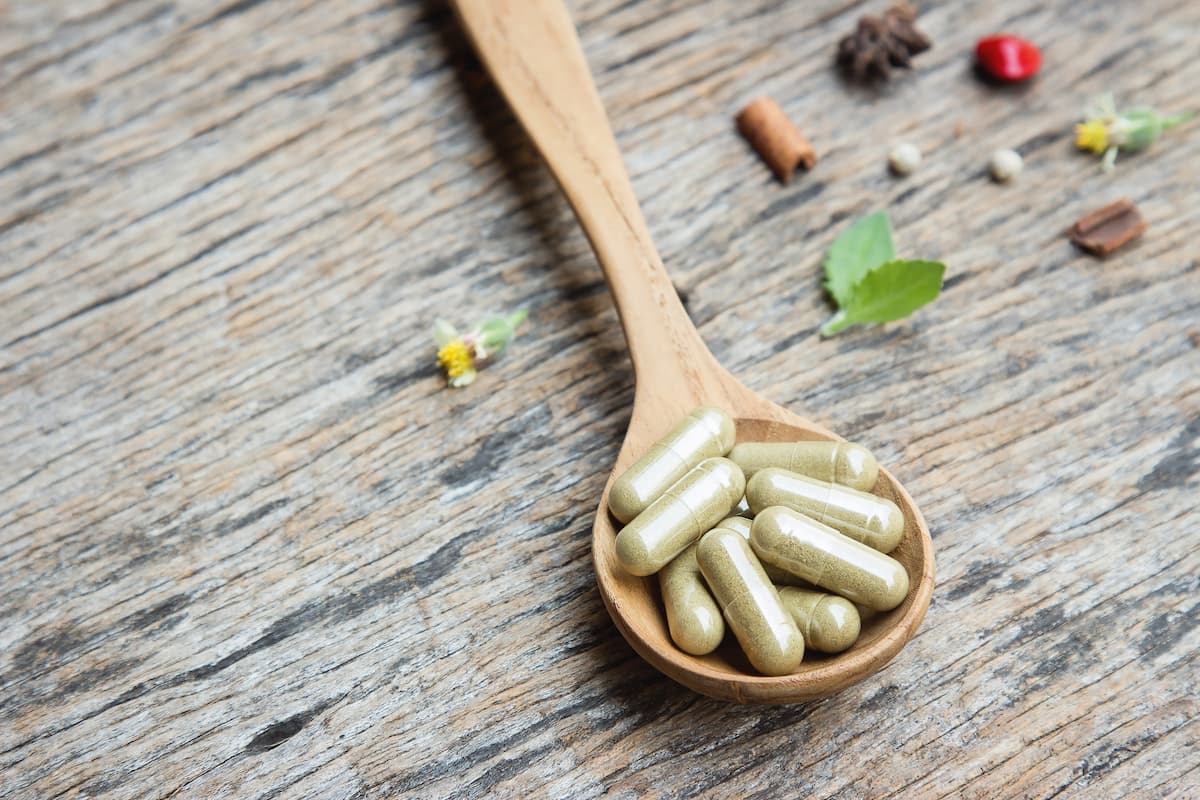
Ashwagandha affects thyroid hormone levels. Find out if you can use it.
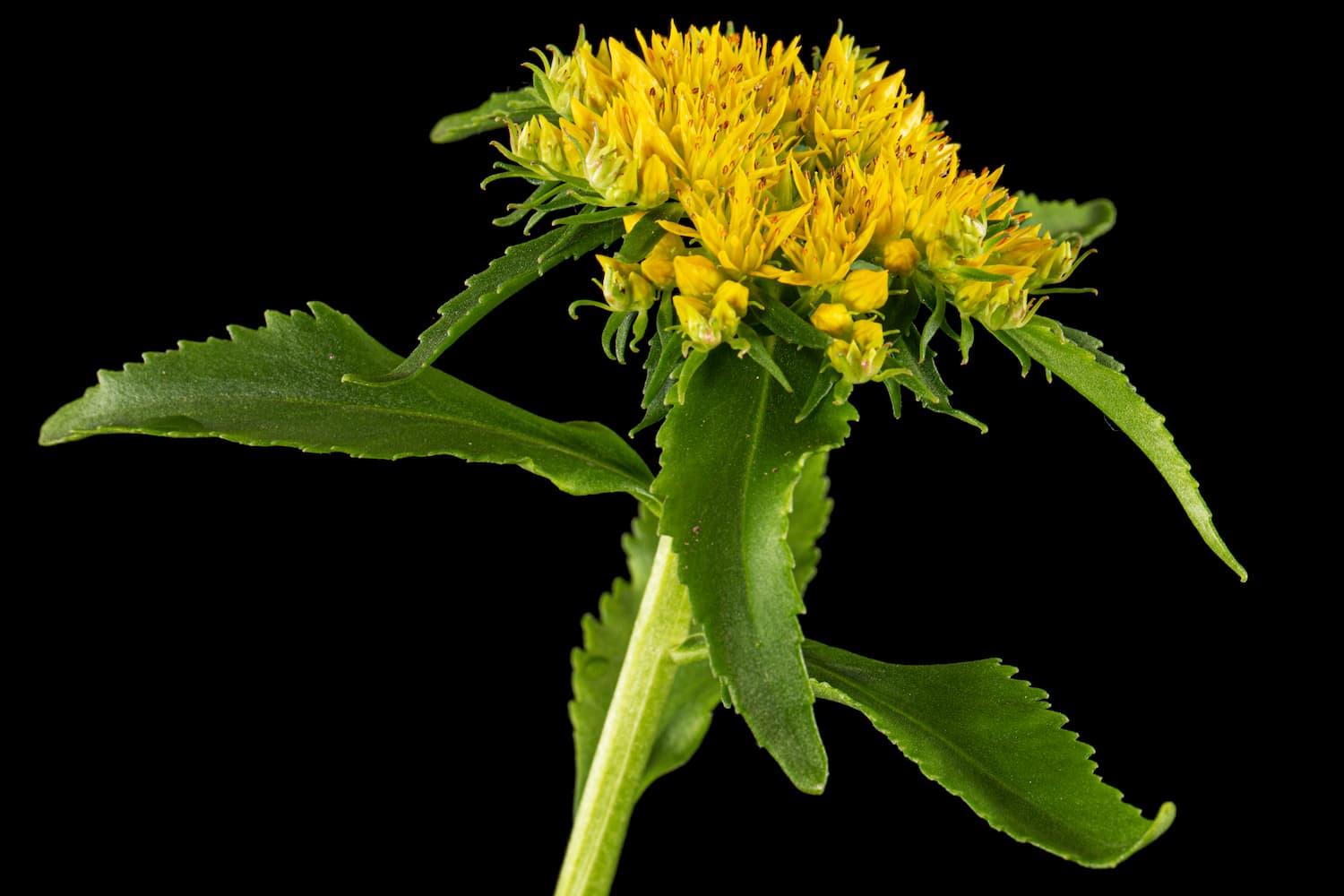
See how mountain pintail can affect your wellbeing.

Check out the opinions of doctors and other professionals about ashwagandha. Also find out what people on the forum think about it.
